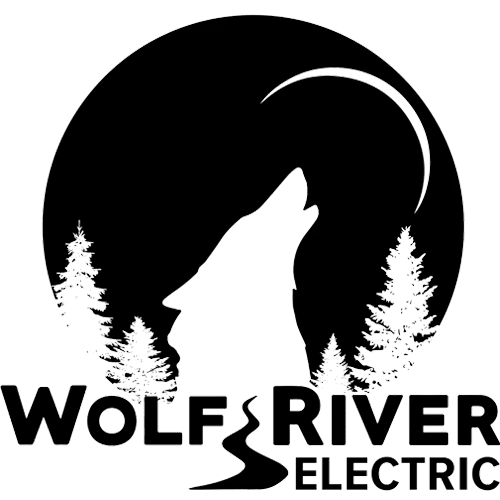Benefits of Solar Energy
Solar energy offers multiple advantages. Here are some highlights.
- Reduced carbon footprint: Utilizing solar is a surefire way to lower your carbon footprint and home fossil fuel dependency.
- Lowered energy bills: Solar panels let you generate your own energy to power your home, decreasing your periodic electricity costs. You can eliminate your bills completely if you go off-grid. Plus, a significant number of states offer net metering, which permit you to earn money by selling your unused energy back to the grid.
- Better energy independence: Photovoltaic solar panel systems with battery storage systems operate through blackouts and emergencies, and you won't have to depend on the grid for your safety and well-being.
What Solar Incentives Are Available to St. Cloud Homeowners?
The state of Minnesota offers several solar incentives to help lower your solar system costs. Here is a breakdown of eligible solar programs where you live.
Incentive Type: Performance-Based Incentive
Website: xcelenergy.comIncentive Amount:
Systems 0.5 kW - 25 kW: $0.005/kWh
Medium-sized Systems 25.1-500 kW: $0.0375/kWh
Large Systems (>500kW): Determined through competitive bid
Incentive Type: Sales Tax Incentive
Incentive Amount:
100% exemption
Incentive Type: Property Tax Incentive
Incentive Amount:
Solar: 100% exemption from real property taxes
Wind: 100% exemption from real and personal property taxes
Incentive Type: Sales Tax Incentive
Incentive Amount:
100% of sales tax
Incentive Type: Rebate Program
Website: xcelenergy.comIncentive Amount:
Refrigerator/Freezer Recycling: $50
Natural Gas Furnace Existing Home: $200-$400
Natural Gas Furnace New Construction: $100-$200
Natural Gas Hot Water Boiler: $100-$400
ECM Furnace: $100
Central AC: $150-$450
Tank Water Heater: $75-$500
Tankless Water Heater: $250
Attic/Wall Insulation: 30% of project cost
Air Sealing: $150-$200
Furnaces: $200-$425
Boilers: $125-$400
ECM Motor Furnace Fan: $125
Programmable Thermostat: $10
Heat Pumps: $175-$475
Water Heating: $100-$250
Clothes Washer: $10
Refrigerator: $15
Ground Source Heat Pump: $150/ton
Incentive Type: Rebate Program
Website: bpu.orgIncentive Amount:
Dishwasher: $35
Clothes Washer: $35
Electric Clothes Dryer: $35
Refrigerator: $35
Freezer: $35
Dehumidifier: $20
Room/Window A/C: $35
High Efficiency Electric Water Heater: $35
Central A/C Tune-Up: $35
Central A/C: $200-$350
Mini Split/Ductless A/C: $250
ECM Replacement Motor: $100
Furnaces: $200-$375
Heat Pump Water Heater: $250
Air Source Heat Pump: $250
Geothermal Heat Pump: $100/ton
Incentive Type: Grant Program
Website: xcelenergy.comIncentive Amount:
Varies
Incentive Type: Loan Program
Website: connexusenergy.comIncentive Amount:
$7,500
OR
$20,000
Incentive Type: Rebate Program
Website: connexusenergy.comIncentive Amount:
EV Charger Installation: $500
Wi-Fi Thermostat: $125
Honeywell Wi-Fi Thermostat: Free, with enrollment in PowerNap Wi-Fi Air Conditioning program
Load Control: Varies
Peak-Time Rebate: $1/kWh saved
Incentive Type: Rebate Program
Website: energywisemn.comIncentive Amount:
Varies by measure and member cooperative offering.
Incentive Type: Loan Program
Website: mncee.orgIncentive Amount:
$20,000
Incentive Type: Loan Program
Website: mnhousing.govIncentive Amount:
$15,000. Applicants may be eligible for higher loan and term amounts depending on income
Incentive Type: Performance-Based Incentive
Website: mn.govIncentive Amount:
1.5¢/kWh
1.0¢/kWh for certain hydro facilities in need of repair
Incentive Type: Rebate Program
Website: mnpower.comIncentive Amount:
$0.56/kWh estimated production in the first year
Incentive Type: Rebate Program
Website: mnpower.comIncentive Amount:
Refrigerator/Freezer Recycling: $50
Refrigerator: $30
Freezer: $30
Dehumidifier: $25
Central AC: $50
Air Source Heat Pump: $300-$1200
Electronically Commutated Motors: Varies, see program website
Ground Source Heat Pump: $200-$400 per ton plus $200 for ECM motor
Smart Thermostat: $75
Lighting: $3-$15
Ceiling Fan: $10
Heat Pump Water Heater: $400
Drain Water Heat Recovery: $400
Incentive Type: Rebate Program
Website: mnpower.comIncentive Amount:
Comprehensive Measures: $2,000
Central A/C: $50
Drain Water Heat Recovery unit: $400
Air Source Heat Pumps: $50 - $1,000
Drain Water Heat Recovery Unit: $400
Ground Source Heat Pump: $200-$300
Electronically Commutated Motors: $200-$600 (higher incentive levels are in combination with central AC or Air Source Heat Pumps)
ENERGY STAR Appliances:
Refrigerator: $30
Freezer: $30
Dehumidifier: $10
Refrigerator/Freezer Recycling: $50
Heat Pump Water Heater: $50
LED Bulbs: $3-$5
LED Fixtures: $10 - $15
Incentive Type: Rebate Program
Website: stearnselectric.orgIncentive Amount:
ENERGY STAR Appliances
Dehumidifier: $25
Ductless Air Source Heat Pump: $300
Freezer (with recycling of your old unit): $50
Pool Air Source Heat Pump: $400
Refrigerator (with recycling of your old unit): $50
Variable Speed Pool Pump: $200
Heating & Cooling
Air Source Heat Pump: $550-$700
Dual Fuel Heating: $200
Electronically Commuted Motor: $25
Electric Water Heater: $100
Geothermal Heat Pump: $150/ton
Heat Pump Water Heater: $200
Marathon or HTP Water Heater: $100 (50 gal.) - $300 (85 gallons or more)
Peak Shave Water Heating & Dual Fuel: $5 monthly bill credit
Storage Space Heating: $50/kW
Stored Water Heating: $7.50 monthly bill credit
Incentive Type: Rebate Program
Website: eastcentralenergy.comIncentive Amount:
CFL Recycling: $0.50 per bulb
Heat Pump/AC Tune Up: $25
Air-Source Heat Pumps: $300 - $630
Geothermal Heat Pump: $400/ton
Freezer/refrigerator with recycling: $25
Wi-Fi Enabled Thermostat: $25
Incentive Type: Personal Tax Credit
Website: ecowatch.comIncentive Amount:
30% federal tax credit for systems placed in service after 12/31/2021 and before 01/01/2033. Good for: solar water heat, solar photovoltaics, biomass, geothermal heat pumps, wind (small), fuel cells using renewable fuels.
How To Choose the Best Solar Company in St. Cloud
The purchase price and effectiveness of solar panels often rely on the provider that mounted them. Make your choice based on the following crucial aspects.
Licensing and Training
To install a new photovoltaic system in Minnesota, a contractor must have an electricians' or electrical contractors' license from the Department of Labor and Industry, along with a residential building or remodeling contractors' license in some cases. If their work is regulated by the state's Mechanical Code, they must carry a $25,000 minimum bond with the Department of Labor and Industry. Solar installers can also earn accreditations from standards organizations and trade groups. The most recognized ones in the industry come from the North American Board of Certified Energy Practitioners. Most company websites will prominently display earned credentials, but you should also ask your estimator for more information.
Cost of Solar Panels in St. Cloud
Your solar panels' model will impact how much power you can produce. Monocrystalline panels are among the highest quality and perform the best but cost the most. Polycrystalline panels offer you a budget panel with a traditional design, but at the cost of less power generation. Thin-film panels have a low cost and are excellent for non-traditional roofs, but aren't recommended for large home installations.
If you need to charge an electric car or use your solar power in cloudy weather, you can pay extra for accessories. By selecting the right components, you can make your panel array more effective and user-friendly. Not all solar companies provide these optional components, so look for a provider that installs them if it's important for you.
Generally speaking, it costs about $20,150 for a five-kilowatt solar array in St. Cloud. This table shows more specific costs for different solar panel types and system components in your area.
| Solar Panel Cost | Average Cost |
|---|---|
| Solar Monocrystalline | $1,144 |
| Solar Polycrystalline | $892 |
| Thin-Film | $521 |
| Solar Battery | $732 |
| Solar Home EV Charger | $2,745 |
Financing Solar Energy in St. Cloud
Choosing the best financing option will influence your overall solar system cost and expected savings. Common payment options include cash payments, loans, power purchase agreements, and leases. Most solar experts recommend paying cash or using a solar loan. Cash payments demand a large up-front sum, but they help you avoid paying interest, grant you system ownership, and qualify you for cost-saving solar incentives. Solar loans have the same benefits, though you'll pay more in total due to interest and fees. Much like a home or car loan, you'll pay a set monthly rate with as little as $0 down. Solar leases allow you to rent your panels for a set monthly rate, while PPAs let you pay just for the energy you use, akin to an electric bill. Both options disqualify you for solar incentives and do not provide you system ownership. Solar experts generally don't recommend them, but they might be suitable in some cases. Look for companies that offer two or more payment plans to find the right fit for your budget.
The table below lists the average payback periods for different capacities of solar systems in St. Cloud.
The IRS allows you to claim a 26% federal solar tax credit on total system costs, so long as you purchase it before 2032. Local governments and utilities might also offer their own incentives, financing programs, and rebates that could save you more money.
| Solar System Capacity | Estimated Payback period |
|---|---|
| 1 kW | 2.3 years |
| 2 kW | 4.6 years |
| 5 kW | 11.6 years |
| 10 kW | 23.1 years |
Ready to Get a Quote on Your Solar Project?
Please enter a valid 5-digit zip code!
Frequently Asked Questions About Solar in St. Cloud
How much money could I save by going solar in St. Cloud?
Is solar energy common in St. Cloud?
Will a solar PV system improve my St. Cloud home value?
How can I assess my property's solar viability?
How long does a standard solar system last?
How do I care for my new solar system?
What is "net metering," and how does it work?
Some states or power companies oblige you to join net metering when installing your solar system, while others give you a choice. Either way, once you join, you'll receive a bill credit or check for your excess generation at a retail or wholesale rate.
To share feedback or ask a question about this article, send a note to our Reviews Team at reviewsteam@thisoldhousereviews.com.

















